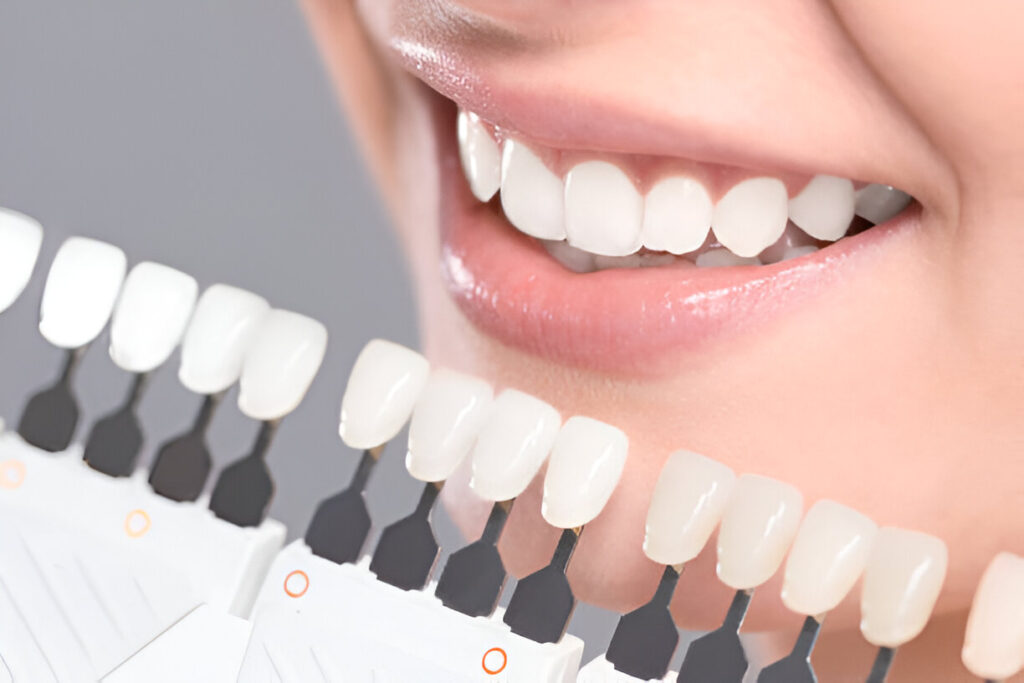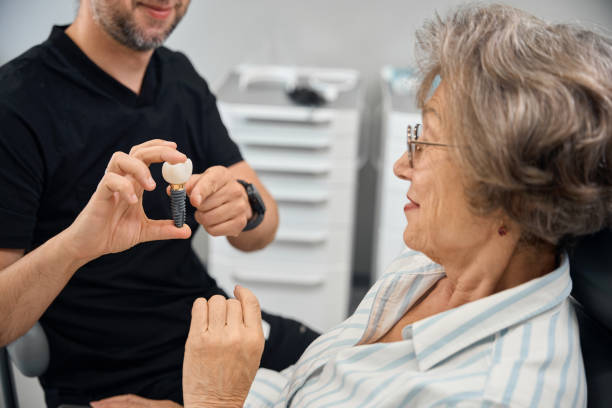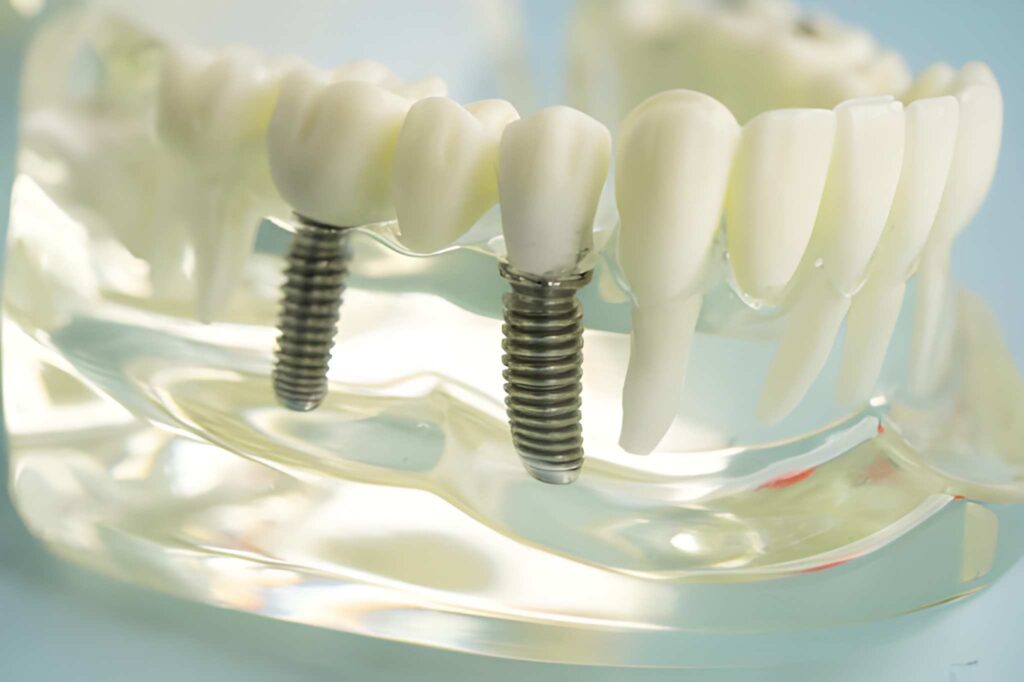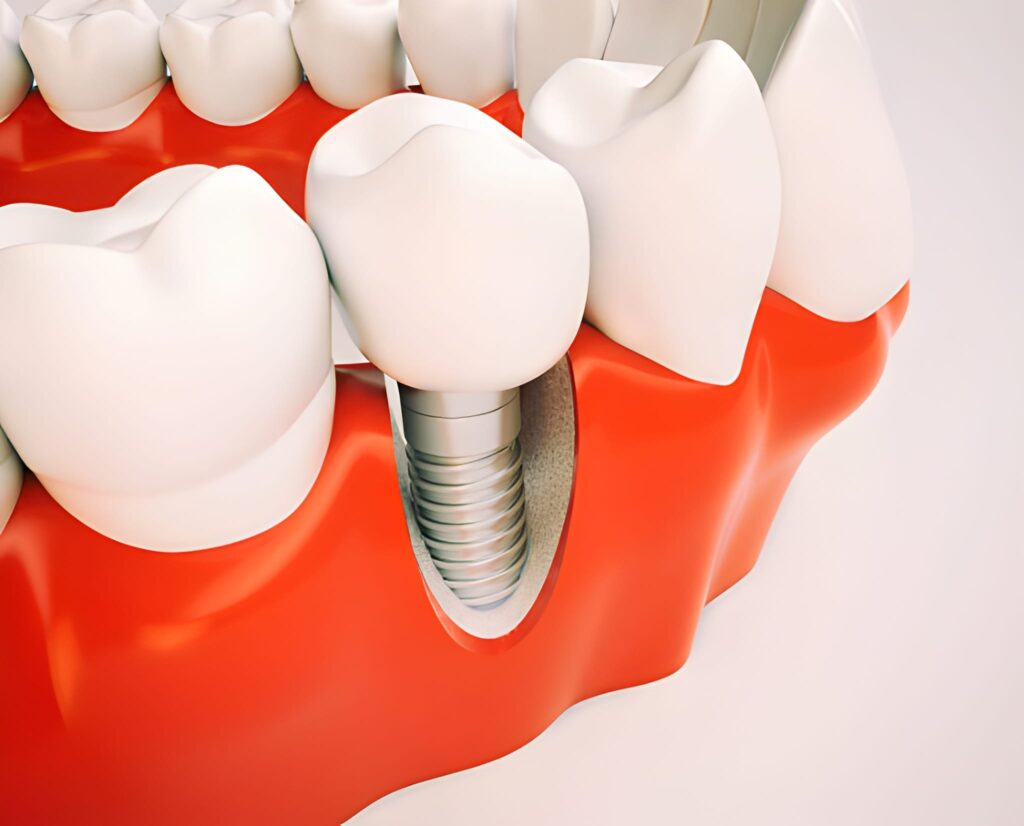Teeth whitening treatments are becoming more and more popular, helping people achieve a brighter, healthier smile. After a whitening treatment, it’s natural to wonder how long you have to wait before you can eat normally. In this article, we will cover everything you need to know about eating after teeth whitening, including how long to wait before consuming certain foods and drinks.
Why Can’t I Eat Normally Right After Teeth Whitening?
When you undergo cosmetic teeth whitening in Aberdeen, the treatment typically uses a bleaching agent, such as hydrogen peroxide, to remove stains and discolouration from your teeth. The process opens up the pores of the enamel and temporarily softens it, making your teeth more susceptible to staining immediately after the treatment.
Because of this, eating and drinking certain foods right after whitening can cause your teeth to stain more easily. It’s best to avoid foods and drinks that are likely to cause discolouration, such as coffee, tea, wine, and dark-coloured sauces, for a short period following your treatment.
How Long After Teeth Whitening Should I Wait to Eat?
The general recommendation is to wait at least 24 to 48 hours after your teeth whitening treatment before eating or drinking foods and beverages that can stain your teeth. This allows time for your enamel to harden and return to its normal state. However, this can vary depending on the type of teeth whitening treatment you had.
How Teeth Whitening Strips Can Help You Smile Brighter
In-Office Whitening Treatments
If you had a professional in-office teeth whitening procedure, you might be able to eat immediately after treatment. However, it’s still recommended to wait 24 hours before consuming stain-causing foods. Professional treatments are typically stronger, so your teeth will be more sensitive immediately after the procedure.
At-Home Whitening Treatments
For at-home whitening treatments, it’s advisable to be more cautious. Most at-home whitening products, such as strips or trays, require more time for the active ingredients to work, and your teeth may remain more porous for longer. It’s best to wait at least 48 hours after at-home whitening before eating foods that may stain your teeth.
Foods and Drinks to Avoid After Teeth Whitening
To keep your newly whitened teeth looking their best, it’s important to avoid certain foods and drinks that could cause staining. Here’s a list of what to avoid:
- Coffee and Tea: Both coffee and tea contain tannins, which can cause staining. If you must have a cup, try adding milk to reduce the risk.
- Red Wine: Red wine is highly pigmented and can easily stain your teeth. It also has high acidity, which can weaken the enamel.
- Dark Sauces: Tomato sauce, soy sauce, and balsamic vinegar are known for their ability to stain teeth. Avoid these during the 48-hour period.
- Fizzy Drinks: The acidity in carbonated drinks can soften enamel, making it easier for stains to settle in.
- Fruit Juices: While healthy, fruit juices like orange juice and pomegranate juice are acidic and can damage the enamel.
- Berries: Dark fruits such as blueberries, raspberries, and blackberries contain pigments that can stain your teeth.
- Tobacco Products: Smoking or chewing tobacco can easily stain your teeth and should be avoided.
What Foods Can You Eat After Teeth Whitening?
While you may need to avoid certain foods after teeth whitening, there are still many options that are safe and won’t affect the results of your treatment. Here’s a list of teeth-friendly foods to enjoy:
- Chicken and Turkey: These light meats are not only healthy but also unlikely to stain your teeth.
- Fish: Opt for white fish, which is light in colour and free from strong pigments.
- Rice and Pasta: These staples are safe to eat, but be sure to avoid dark sauces that could cause staining.
- Egg Whites: The white part of an egg is safe to eat after whitening, but avoid the yolk as it may contain colour.
- White Bread: Stick to plain white bread without crust, which can be more likely to trigger staining.
- Potatoes: Peeled potatoes are safe to eat and will not stain your teeth.
- Bananas: These soft, light fruits are a great option post-whitening as they won’t cause any damage to your new smile.
- Cheese: Opt for lighter-coloured cheeses, such as mozzarella, as they won’t stain your teeth.
Can Teeth Whitening Be Done on the NHS?
How Long Does the Whitening Effect Last?
The results of teeth whitening can last anywhere from 6 months to 2 years, depending on your lifestyle habits. If you follow the right aftercare, including avoiding foods that can stain your teeth, your whitening results will last longer. However, habits such as drinking coffee or smoking can cause your teeth to darken more quickly.
To keep your smile as bright as possible, maintain good oral hygiene by brushing and flossing regularly, and continue to visit your dentist for regular check-ups. You can also use whitening toothpaste to help maintain your teeth’s brightness.
What to Do If You Can’t Wait to Eat After Teeth Whitening
If you’re finding it hard to wait before eating or drinking after your teeth whitening treatment, here are a few tips to help:
- Use a Straw: For drinks that could stain, like coffee or tea, use a straw to reduce contact with your teeth.
- Drink Water: If you’re thirsty, always opt for water, which won’t stain your teeth.
- Rinse Your Mouth: After eating or drinking, rinse your mouth with water to wash away any pigments that could cause staining.
Can an NHS Dentist Remove You Without Warning?
Conclusion
In conclusion, while you can technically eat immediately after teeth whitening, it’s best to wait at least 24 to 48 hours before consuming foods and drinks that can stain your teeth. This will allow your teeth to re-harden and prevent any discolouration. If you follow the recommended guidelines and maintain good oral hygiene, you can enjoy the full benefits of your whitening treatment and keep your smile bright for months to come.
Remember to stay mindful of what you eat and drink, and take the necessary steps to protect your newly whitened teeth. If you’re unsure about what foods to avoid or how long to wait before eating, be sure to consult your dentist for personalised advice.
Take Care of Your Smile at Holburn Dental & Implant Centre
At Holburn Dental & Implant Centre, we offer professional teeth whitening treatments to help you achieve a brighter smile. After your procedure, it’s important to follow our expert advice on maintaining your new smile and avoiding food that could cause staining. If you have any questions or need follow-up care, feel free to contact us. Book your appointment today to keep your smile healthy and bright!
FAQs About Eating After Teeth Whitening
How soon can I drink coffee after teeth whitening?
It’s best to wait at least 24 to 48 hours after teeth whitening before drinking coffee. Coffee contains tannins that can stain your teeth, so it’s better to avoid it for a couple of days to maintain your results.
Can I eat chocolate after teeth whitening?
It’s advisable to avoid dark chocolate for at least 48 hours after whitening. Dark chocolate contains staining agents that can impact the appearance of your teeth. Milk chocolate is a better option but should be consumed in moderation.
Is it safe to eat spicy food after teeth whitening?
Spicy foods are generally safe to eat after teeth whitening. However, they can sometimes irritate sensitive gums. It’s best to wait a few hours after the procedure before consuming spicy dishes to avoid discomfort.
Can I eat fruit right after whitening my teeth?
While most fruits are safe to eat, dark fruits like berries (e.g., blueberries and blackberries) should be avoided for 48 hours as they can stain your teeth. Stick to lighter fruits like bananas for a safer option.
How long should I wait before eating acidic foods after whitening?
Acidic foods like citrus fruits and tomatoes should be avoided for at least 48 hours after teeth whitening. The acidity can soften enamel temporarily, increasing the risk of staining. Choose non-acidic foods during this period to protect your results.




